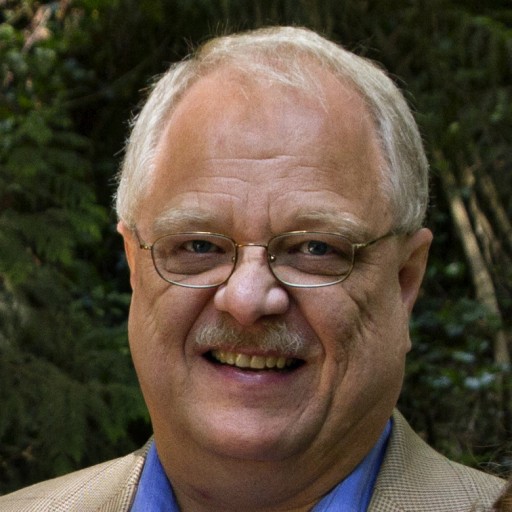The Ancient-Future Generation
 I came of age in the 1960s and smile at the memory of bell-bottom pants and paisley print shirts. Other memories, however, don’t prompt a grin. Some described the social upheaval of the era as evidence of a generation gap-“Don’t trust anyone under 30.”
I came of age in the 1960s and smile at the memory of bell-bottom pants and paisley print shirts. Other memories, however, don’t prompt a grin. Some described the social upheaval of the era as evidence of a generation gap-“Don’t trust anyone under 30.”
In spite of the turmoil-maybe because of it-the 1960s brought a new vitality to evangelicalism. An understanding of the church as koinonia, a Greek word for “fellowship,” was revived and became the name of many Nazarene Sunday school classes. College students rekindled involvement in Christian witness, including the creation of the Student Mission Corps in the Church of the Nazarene. Worship music changed as congregations started singing Scripture-based songs.
The upheaval in the 1960s, however, seems merely a precursor to the seismic shifts going on now. What some have called postmodernism is not a generation gap, but a profound change in people’s outlook on life. People of all ages recognize the transition, but 20-somethings live as “natives” in this new world. As was the case in the 1960s, young Christians today attempt to work out what it means to follow Jesus in a changing culture.
Crossing a Threshold
While crossing this threshold, people use the prefix “post-” to denote ways things are changing. “Post-” literally means “after.” Since we can’t yet read the trends clearly enough to accurately coin a new descriptor, we must be content to simply acknowledge that something different follows what came before. The following two “post-” terms describe today’s society.
Post-Enlightenment. The Enlightenment brought an optimism that scientific reasoning would eliminate the woes of the human condition. But disillusionment has shattered that optimism. The war to end all wars didn’t. The next generation sees life as too messy to be reduced to four laws or five principles. These young believers, however, are not anti-reason. They participate in robust theological conversations.
Similar to John Wesley, they do not rely solely on the mind as a means of knowing truth. The Wesleyan quadrilateral, a system of theological reflection derived from the teachings of John Wesley, asserts Scripture as the primary way of knowing God, something young Christians affirm. In addition to Scripture and reason, Wesley also taught that tradition could help a person know the truth. The newest generation of Christians look back beyond the 19th century American Holiness revival, beyond the 18th century Wesleyan awakening, and beyond the 16th century Reformation, seeking to reclaim all of the Christian tradition in their quest for truth.
The term “ancient-future” is increasingly being used to denote carrying the values and practices of historic Christianity into the future. The fourth leg of the quadrilateral stool is experience. The next generation of Jesus followers listens and learns from the testimonies of all Christians. This results in an eclectic mix of multi-sensory experiences.
Post-Christendom. The term Christendom refers to a society dominated by Christianity. In the fourth century, Constantine made Christianity the official religion of the Roman Empire. The character of the Church changed dramatically when it gained favored status. The Church has lost that favored status, first in Western Europe. More recently in the U.S., some of the change came through the courts with rulings such as the 1960s ban on prayer in schools.
But we need to confess that part of the loss of Christianity’s influence resulted from sin in the Church. Sexual misconduct by clergy and deceptions by televangelists and other leaders associated with the Christian faith have taken their toll. Some Christians attempt to regain favored status through political action. The newest generation of Christians seems to prefer subtle, subversive means to impact society and in doing so resembles the early Church.
A Source of Hope
As I observe the values of young Christians, I see three things that bring great hope. These believers have more interest in being part of a vibrant faith community than merely being members of a church. They are more concerned with being faithful Jesus followers than merely adhering to denominational precepts. They give more attention to discerning and becoming involved in Missio Dei (God’s mission) than merely filling a program position.
1. Community. John Wesley wrote, “The Bible knows nothing of solitary religion.” In response to rampant individualism, the ancient-future generation seeks to recapture Wesley’s emphasis on the community of faith. Relationships are important to them. They value hospitality that makes room for others. They value generosity that shares freely with those in need. John Wesley organized bands, classes, and societies to nurture the spiritual formation of the early Methodists. Leadership emerged from within those groups in an organic way.
A similar movement happens today when youthful leaders arise naturally, but the characteristics of those leaders have changed. Gatherings of young Christians tend to function by consensus in contrast to the top-down decrees used by some leaders. They surrender power instead of dominating others, allowing another to take the lead through mutual submission. The value of community is evident in the way they share leadership.
2. Jesus Followers. The next generation of Christians is intent on following a Person, not merely trying to live according to a list of propositions. I’ve watched with delight as they embody the gospel, finding creative ways of incarnational living. Evangelism shifts from a method to a journey as they share life with others moving closer to becoming Jesus followers. Their concern for social justice and environmental issues emerges from their identity in Christ. As Jesus did, the ancient-future generation uses stories extensively. Since they don’t believe life can be reduced to a list of propositions, they prefer stories that have room to accommodate the messiness of life. Living in the narrative, they seek to play their roles in the story of Christ’s redeeming work.
3. Missio Dei (mission of God). John Wesley taught that God’s (prevenient) grace initiates reconciliation. This doctrine asserts that God continually seeks to draw all persons into relationship. The mission of God expresses the very nature of God. No longer content with a package of pre-planned programs, new leaders seek to discern what God is already doing, and then they get involved in that mission. The young Christians I know look for anything with kingdom of God values. They don’t pay much attention to whether redemptive actions can be quantified for an annual report. Rather, they seek to discern God’s activity, and then give themselves as ministers of reconciliation.
I’m greatly encouraged. As I learn from the next generation of Christians, I see communities of Jesus followers involved in the missio Dei-a covenantal identity emerging from a theological foundation that results in mission-focused living. What they do is less large-scale innovation than a rediscovery. What arises is a revival of our identity as Wesleyans and a re-formation of the Church in the spirit of the Apostles. For this reason, I call these Christians the ancient-future generation.
I trust the ancient-future generation, for I see in them a spiritual fervor and theological depth that contributes to the renewal our world desperately needs. Thanks be to God.
Published in Holiness Today (March/April 2008, pp. 18-21)

